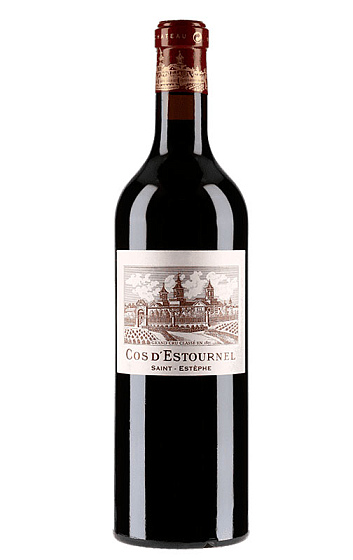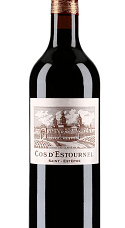Château Cos d'Estournel 2018
Descripción
Este tinto es con total y absoluta seguridad uno de los mejores vinos de Burdeos en la mayoría de añadas. Este Cos d'Estournel es una notable expresión de la elegancia de los burdeos asociada a una sorprendente potencia sin desbordamientos.
Ficha técnica
Cata
Viñedo y elaboración
Opinión de los críticos
The 2018 Cos d'Estournel is a blend of 74% Cabernet Sauvignon, 23% Merlot, 2% Petit Verdot and 1% Cabernet Franc, aged in 50% new oak barriques. The alcohol weighs in at just over 14.5%. Sporting a deep purple-black color, it needs a lot of swirling to begin to unlock a powerful nose of crème de cassis, stewed plums, wild blueberries and chocolate-covered cherries, followed by nuances of Sichuan pepper, star anise, tree and clove oil, plus a waft of charcoal. The full-bodied palate is densely packed with taut, muscular black fruits and earthy layers, framed by super firm, ripe, grainy tannins and seamless freshness, finishing very long and wonderfully earthy. A very impressive behemoth, this is going to need a good seven to 10 years to truly show its stuff and should drink for a good 40 years and beyond.
The richness and beauty of this wine is impressive with blackcurrant, cherry, berry and fresh cloves. The fruit is so pure here. Full-bodied with tannins that are so integrated and refined that you don’t feel them, yet they are there! Very creamy and layered with great length and beauty. It turns to tar and licorice at the finish. Tight now, but the texture is special. Try after 2027.
This has some austerity on the attack, then announces its arrival in the inimitable way that Cos is able to do: with a slow build up of exotic spices, liquorice root, cedar and cassis. It stretches out through the palate and you keep waiting for the tannins to punch through like they did in 2010, but it doesn't happen, even though this is a big wine with high alcohol and an IPT of 80. There's a great menthol freshness on the finish, helped no doubt by a fresh 3.65pH. It has the luxurious signature of Cos, the glamorous touch that you look for in this wine - like at Mouton and at Angelus - that is part of their DNA, but it's also married to elegance and a touch of slate minerality. This is a wine that you would be thrilled to own. 12mm of rain on 12 September and 20mm in mid-August were just enough to stop any blockages in ripening, although the 30hl/ha yield is low due to a touch of mildew and some concentration in September. This compares to a more generous 45hl/ha in 2016. 65% of production went into the grand vin. 1% Petit Verdot makes up the blend, and the wine is aged in 50% new oak (a little lower than the usual 60%). A candidate to upscore when in bottle.
An incredible wine from this estate that's as good as anything in the vintage, the 2018 Château Cos D'Estournel checks in as 74% Cabernet Sauvignon, 23% Merlot, 2% Cabernet Franc, and 1% Petit Verdot that was brought up in 50% new French oak. While some 2018s are going to offer pleasure right out of the gate, this isn't one of them, but rather it's a backward, tannic powerhouse of a wine that has flawless balance as well as a level of purity that's off the charts. Thrilling crème de cassis fruit, notes of lead pencil, damp earth, cedarwood, violets, and acacia flowers, full-bodied richness, masses of ultra-fine tannins, and a great, great finish all make for a legendary Saint-Estèphe that will need a good decade of bottle age yet evolve for 50 years or more. If you are tempted to try a bottle in its youth, it needs lots of air.






Añadas: 2022 2018
Esta añada no tiene valoraciones todavía. Pincha en las otras añadas para ver sus valoraciones.
Esta añada no tiene valoraciones todavía. Pincha en las otras añadas para ver sus valoraciones.